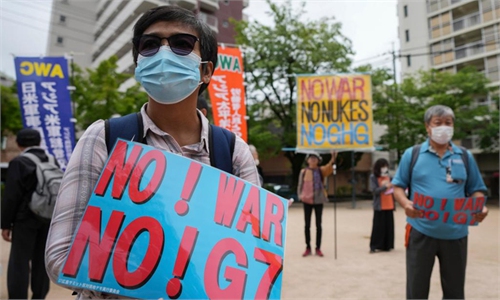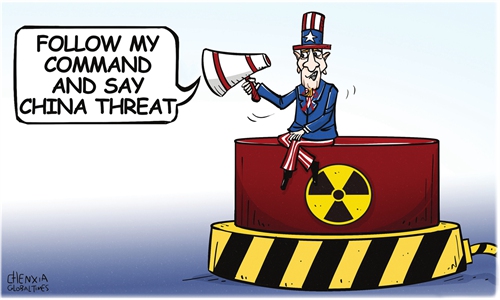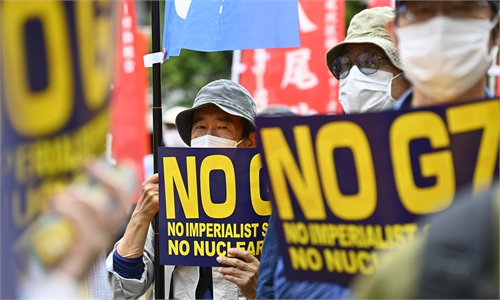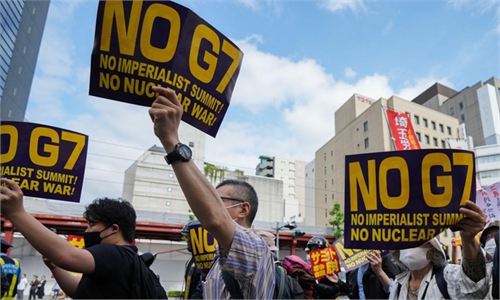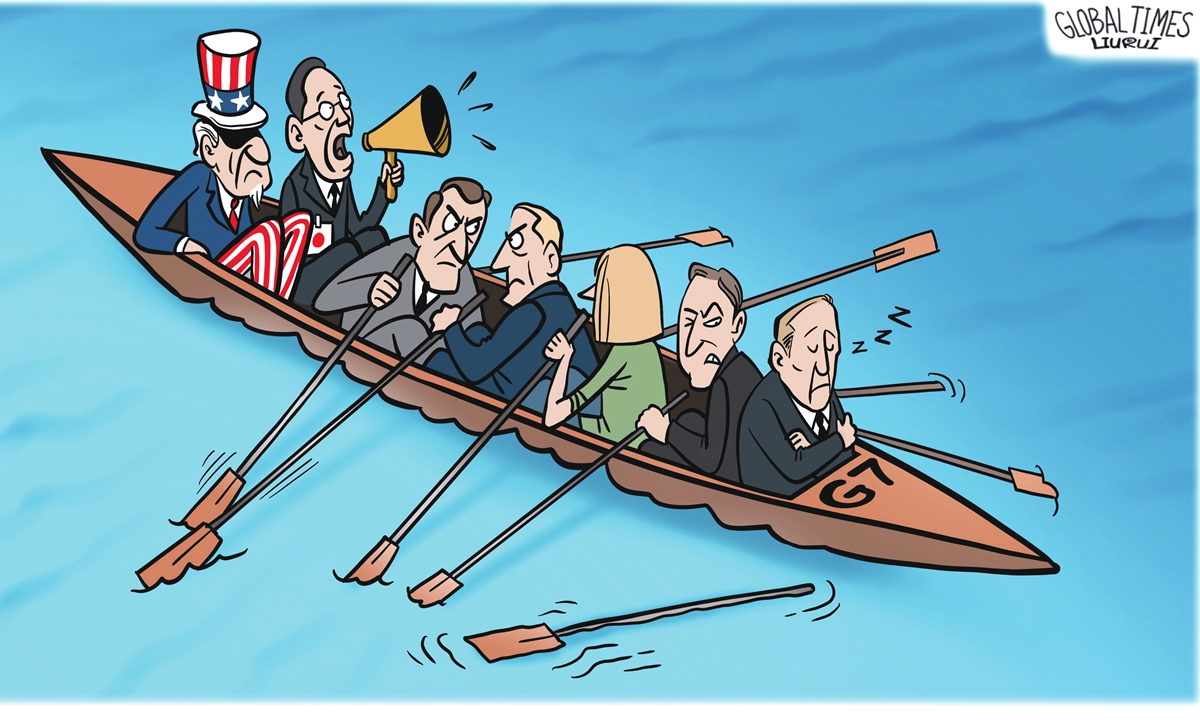
Illustration: Liu Rui/GT
The G7 Hiroshima Leaders' Communiqué released at the G7 Hiroshima summit are self-contradictory in terms of its stance toward China, while attempting to be tough in its general tone. Its wording is obviously dominated by the US. Although the US has slandered China for "genocide" in Xinjiang, the G7 communiqué did not follow up on this. However, the US accused China of so-called "economic coercion," and the G7 summit documents talked about "economic coercion" in a way that clearly alluded to China. While the G7 communiqué claimed not to seek decoupling from China, it sought to "de-risk," protect certain "advanced technologies" and "reduce excessive dependencies in our critical supply chains."The US has almost no reservation about confronting China publicly, which determines that the tone of the G7 communiqué is becoming harsher and harsher toward China. However, this does not mean that the G7 as a whole has made up its mind to confront China. Their collective interests on the China issue are very complicated. The US is determined to contain China, but once its plan becomes concrete, the group's internal interests toward China will become more sophisticated, and it will "fight against itself." Within the larger West, there are even more divergences of interests toward China, and Europe's attitude and that of the West as a whole will also have many differences.
As we all know, it is very difficult to fulfill "contradictory" tasks even in China, where state mobilization capability is extremely strong. In the G7, it will only become more difficult to demand China to do everything it wants, and it is unlikely to form a stable and consistent route, which will provide China with a lot of room to make a way out.
From this trend, the US will exclude China as it pursues high-tech decoupling and consolidating critical supply chains, and Washington is determined in this regard. The actual direction of the US policy towards China is to cut off and reduce China's technological connections with the West as much as possible. We must be prepared for the worst. However, there is still a lot we can do to maintain and expand trade and mutual investment between China and the West. These achievements will in turn squeeze the space for the US to mobilize the West to decouple from China and increase the difficulty of doing so. The stronger we are, the more initiative we will have, and the greater the contradictions between Europe and the US and the differences in attitudes towards China within the US will ferment.
Therefore, we must not be anxious about being excluded by the US. The US strategy looks logical and holds key levers, but it will definitely be difficult to implement because it means adjustment, restructuring, huge costs, self-harm and so on. China's strategy is to develop ourselves well, make friends when we can, and expand mutually beneficial cooperation as much as possible. These are beneficial for ourselves and others, and doing good things is definitely more natural and easier than the US dragging a group of people to do bad things together. The US is pulling the G7 to make contradictory demands on China, while China is pursuing practical results. Our task will be much simpler and clearer, and we will have much greater hope and energy to accomplish it.
As a result, the G7 communiqué is long and offensive, and the part dealing with China is actually wrung out on the most important economic points. The other parts, while harsh in tone, were mostly bluster, and the G7 did not have the strength and common will to turn provocative rhetoric and some harsh words into actual goals. China just needs to hit them back with the same harsh language. We are already the masters of our own destiny and have sufficient strategic decision-making freedom in core interests. To put it in a bad way, how to solve the Taiwan question, the G7 can write some words in the communiqué, but it counts for nothing.
The author is a commentator with the Global Times. opinion@globaltimes.com.cn

